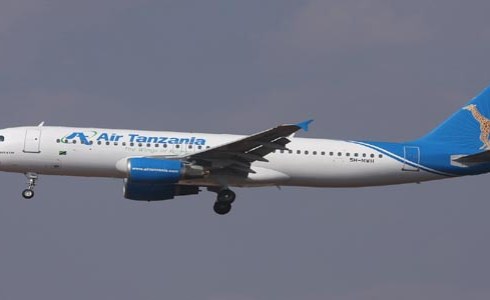Having initiated democratic change, Tanzania’s president appears to be fighting a rearguard action by Magufulist hardliners.
After she succeeded the late John Magufuli as President of Tanzania in March 2021, Samia Suluhu Hassan began mitigating the authoritarianism of her predecessor. She restored basic civil rights, unbanning public rallies and loosening media controls, started consulting with opposition parties on necessary reforms, and proposed an inclusive ‘committee of experts’ to guide the long-delayed constitutional review process.
Samia also sacked Magufuli loyalists, including chief secretary Bashiru Ally, foreign affairs minister Palamagamba Kabudi, and spy chief Diwani Athumani Msuya, who had overseen the previous president’s crackdown on civil liberties. And she returned to the Cabinet people who had been sidelined by Magufuli, including January Makamba and Nape Nnauye.
But late last year her reforms appeared to stall, and Magufuli’s hardline supporters seemed to be making a comeback. She appointed some of them to key positions – such as Doto Biteko as Deputy Prime Minister – and reversed some reform moves. A key one was the long-expected review of the country’s constitution, which she postponed until after next year’s national elections.
Perhaps the appointment that bothered democratic reformists most was that in October 2023 of Paul Makonda – widely disliked by the opposition – to the role of ideology and publicity head in the ruling Chama Cha Mapinduzi (CCM) party. This year started more encouragingly with Makonda’s transfer from that more important post to the governorship of Arusha.
It is now becoming harder to read where the president is going. Some analysts say the hardliners are out again. Yet democratic reforms don’t seem to be going as far or as fast as they should before the local government elections in October this year and the national ones next year.
This week, for instance, two new political parties – the Independent People’s Party and Action for Human Justice (AHJ Wajamaa) – complained that the Office of the Registrar of Political Parties was stalling approval of their registration applications. These are small parties and perhaps inconsequential. But ISS Today was told the apparent stalling might be because the two parties’ leaders were CCM ‘Magufulist’ hardliners looking for an alternative route to power, having been frustrated by Samia within the CCM.
One insider said, perhaps hyperbolically, that the ruling party feared the new opposition parties ‘would do a Zuma on the CCM.’ This refers to the way former South African president Jacob Zuma formed a new party, uMkhonto weSizwe (MK). MK astonishingly played the decisive role in knocking the ruling African National Congress down from 57% to just 40% of last month’s national vote.
In early February this year, Tanzania’s Parliament made what were supposed to be sweeping electoral reforms by passing three bills: the National Election Commission Act, Presidential, Parliamentary and Local Government Elections Act, and Political Parties Affairs Laws (Amendment) Act. The bills were intended to make the National Electoral Commission independent rather than a branch of the executive.
Electoral reform is critical as the 2020 elections were widely deemed to have been manipulated. The reforms include changing the selection of electoral commissioners, who are now solely appointed by the president. An independent panel chaired by judges would in future manage selection.
The laws also open up the position of director of elections to all competent citizens. The selection panel would present a shortlist of three candidates to the president, who would select the director. The same process would apply to the chair and vice-chair of the National Electoral Commission.
The laws similarly open up the process for selecting electoral officials at lower levels, removing requirements that they are appointed from district governors, i.e. from the executive, which in effect largely means they are CCM deployees.
Tanzania’s Governance and Economic Policy Centre (GEPC) hailed Samia as ‘a democrat par excellence‘ for initiating these reforms. However, it cautioned that important gaps remained. These could only be bridged by reviving the stillborn full constitution review, as the electoral reform bills were not underpinned by the current constitution. One of the most important gaps is that election results are not subject to judicial review.
GEPC proposed other democratic reforms such as equal access of political parties to state media and restrictions on using the national security apparatus ‘to support a given political party or its candidates during elections’ (i.e. the CCM).
The country’s main opposition parties complained that despite the appearance of granting the National Electoral Commission independence, the new legislation still reserved the final decision over appointment of commissioners and the director of elections to the country’s president.
Nevertheless, says Zitto Kabwe, outgoing leader of the second largest opposition party, ACT-Wazalendo, through negotiations by his party and others, several improvements had been made to the bills – mainly to enhance the National Electoral Commission’s independence.
Kabwe told ISS Today he had recently explained to his party’s national executive committee that change is a process, not a one-day event. ‘Therefore, we must encourage ourselves that these changes are a very important step in our journey to demand free and fair elections and leave a lasting mark in our country through our party.’
ISS Researcher Nicodemus Minde suggests that Samia’s apparent inconsistencies were necessary strategic political manoeuvres to protect her from the Magufulists. Writing in The Conversation, he said they had won her support in her party and among the broader public. ‘Nonetheless, she could still face resistance from hardline factions within her party who may seek to undermine her in the 2025 general elections.’
Even so, appeasing the hardliners can all too often be a cover for shoring up one’s own power.
Peter Fabricius, Consultant, ISS Pretoria
Source: allafrica.com














